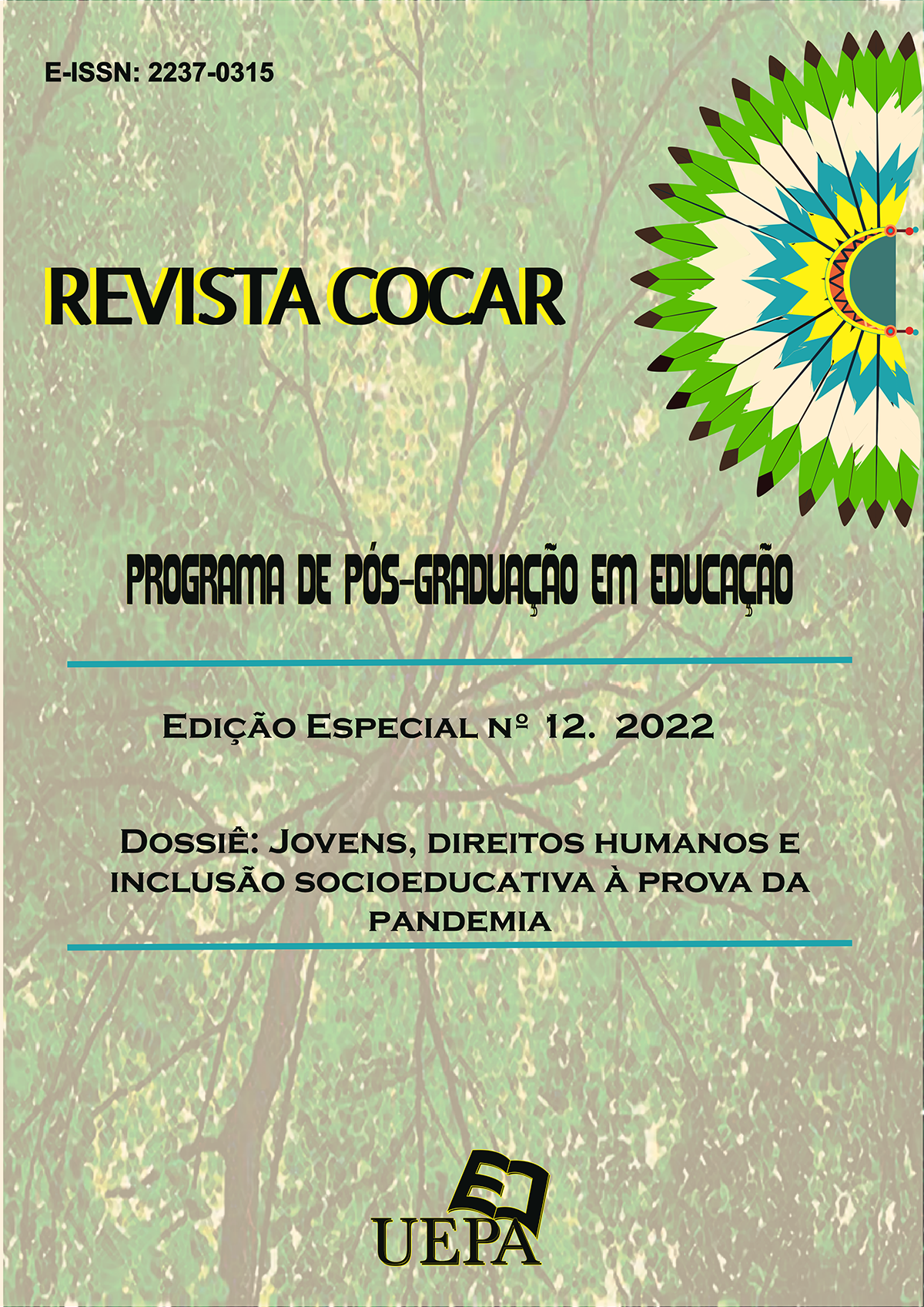A realidade do Centro de Atendimento Socioeducativo (CASE) de Palmas – TO: a limitação do direito familiar no contexto pandêmico
The reality of the Socio-Educational Service Center (CASE) in Palmas – TO: the limitation of family rights in the pandemic context
Resumo
Este estudo realiza uma análise descritiva e exploratória que explicita como ocorrem as interações entre as famílias e os adolescentes que cumprem medida de internação no Centro de Atendimento Socioeducativo (CASE) de Palmas, capital do Estado do Tocantins. O artigo problematiza como tais relações foram afetadas durante o contexto pandêmico. A análise parte da perspectiva de que a família representa, no âmbito social e pessoal, uma experiência única de sociabilidade humana, não comparável com nenhuma outra forma de vida institucional. O estudo conclui que na internação o ato infracional praticado pelo adolescente, em razão de sua condição, é imposto à família e isso requer desta, participação e envolvimento na execução da medida. Constata ainda que a crise sanitária serviu para legitimar a suspensão de direitos, dentre eles, o de visita familiar, promovendo um enrijecimento já presente sobre esta pauta, situação já questionada antes da pandemia por profissionais especialistas desta comunidade socioeducativa e que se agravou no contexto pandêmico.
Palavras-chave: Pandemia; Socioeducação; Família; Adolescente interno.
Abstract
This study performs a descriptive and exploratory analysis which explains how interactions occur between families and adolescents who comply with internment measures, at the Socio-educational Service Center (CASE) in Palmas, capital of the State of Tocantins. The article discusses how such relationships were affected during the pandemic context. The analysis starts from the perspective that the family represents, in the social and personal sphere, a unique experience of human sociability, not comparable with any other form of institutional life. The study concludes that during hospitalization, the infraction, committed by the adolescent due to their condition, is imposed on the family, and this requires participation and involvement in the execution of the measure. It also finds that the health crisis served to legitimize the suspension of rights, including family visits, promoting an already present stiffening on this agenda, a situation that was already questioned before the pandemic by specialist professionals from this socio-educational community and which worsened in the pandemic context.
Keywords: Pandemic; Socioeducation; Family; Indoor teenager.
Downloads
Downloads
Publicado
Métricas
Visualizações do artigo: 801 pdf downloads: 218
Como Citar
Edição
Seção
Licença
O envio de qualquer colaboração implica automaticamente a cessão integral dos direitos autorais à Revista Cocar. A Revista não se obriga a devolver os originais das colaborações enviadas.Deprecated: json_decode(): Passing null to parameter #1 ($json) of type string is deprecated in /var/www/html/periodicos/plugins/generic/citations/CitationsPlugin.inc.php on line 49























